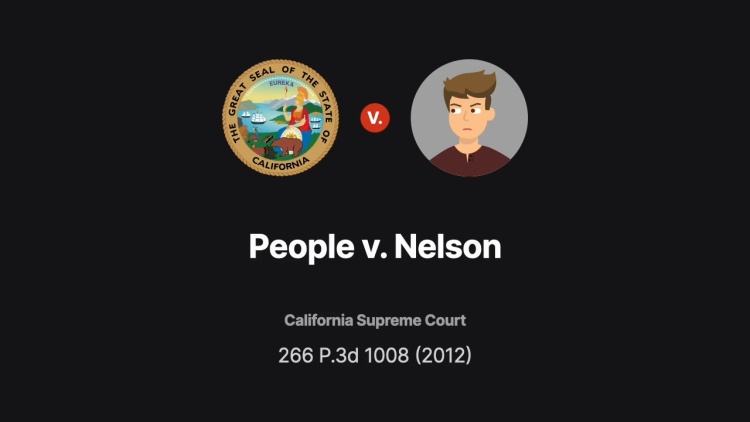People v. Nelson
California Supreme Court
266 P.3d 1008 (2012)
- Written by Craig Conway, LLM
Facts
Shortly after turning 15 years-old, Samuel Moses Nelson (defendant) burglarized three homes and took purses, wallets, and other items. The third burglary occurred at the home of his 72-year old neighbor, Jane Thompson who was later found dead inside. Sheriff’s department investigators requested to speak with Nelson about the crime. After advising Nelson of his Miranda rights, the investigators questioned him for nearly five-hours in a sheriff’s office interview room. At one point Nelson asked to call his mother to let her know what was happening and to ask her if he should take the polygraph test requested by the investigators. Nelson was unable to reach his mother but spoke to his grandmother and brother who advised him not to take the test and to do nothing until his mother or a lawyer arrived. Nevertheless, Nelson continued to speak to investigators. Toward the end of the interview, the investigators told Nelson to “stop playing games” and to “do the right thing” by writing down on paper what had happened in Thompson’s home. Nelson wrote down that he had repeatedly struck Thompson on the head with a hammer after seeing her begin to wake up while he was burglarizing her home. Nelson was charged as an adult with two counts of first-degree burglary related to the other two burglaries, three counts of first-degree burglary stemming from the Thompson burglary and one count of murder. Prior to trial, defense counsel filed a motion in limine to exclude Nelson’s statements to the investigators. The trial court denied the motion and Nelson was found guilty on all counts following a bench trial. Nelson appealed and the court of appeal affirmed in part, but reversed the convictions related to Thompson’s murder and the two other burglaries because they were obtained in violation of Nelson’s Miranda rights. The California Supreme Court granted certiorari to review.
Rule of Law
Issue
Holding and Reasoning (Baxter, J.)
What to do next…
Here's why 911,000 law students have relied on our case briefs:
- Written by law professors and practitioners, not other law students. 47,100 briefs, keyed to 997 casebooks. Top-notch customer support.
- The right amount of information, includes the facts, issues, rule of law, holding and reasoning, and any concurrences and dissents.
- Access in your classes, works on your mobile and tablet. Massive library of related video lessons and high quality multiple-choice questions.
- Easy to use, uniform format for every case brief. Written in plain English, not in legalese. Our briefs summarize and simplify; they don’t just repeat the court’s language.





